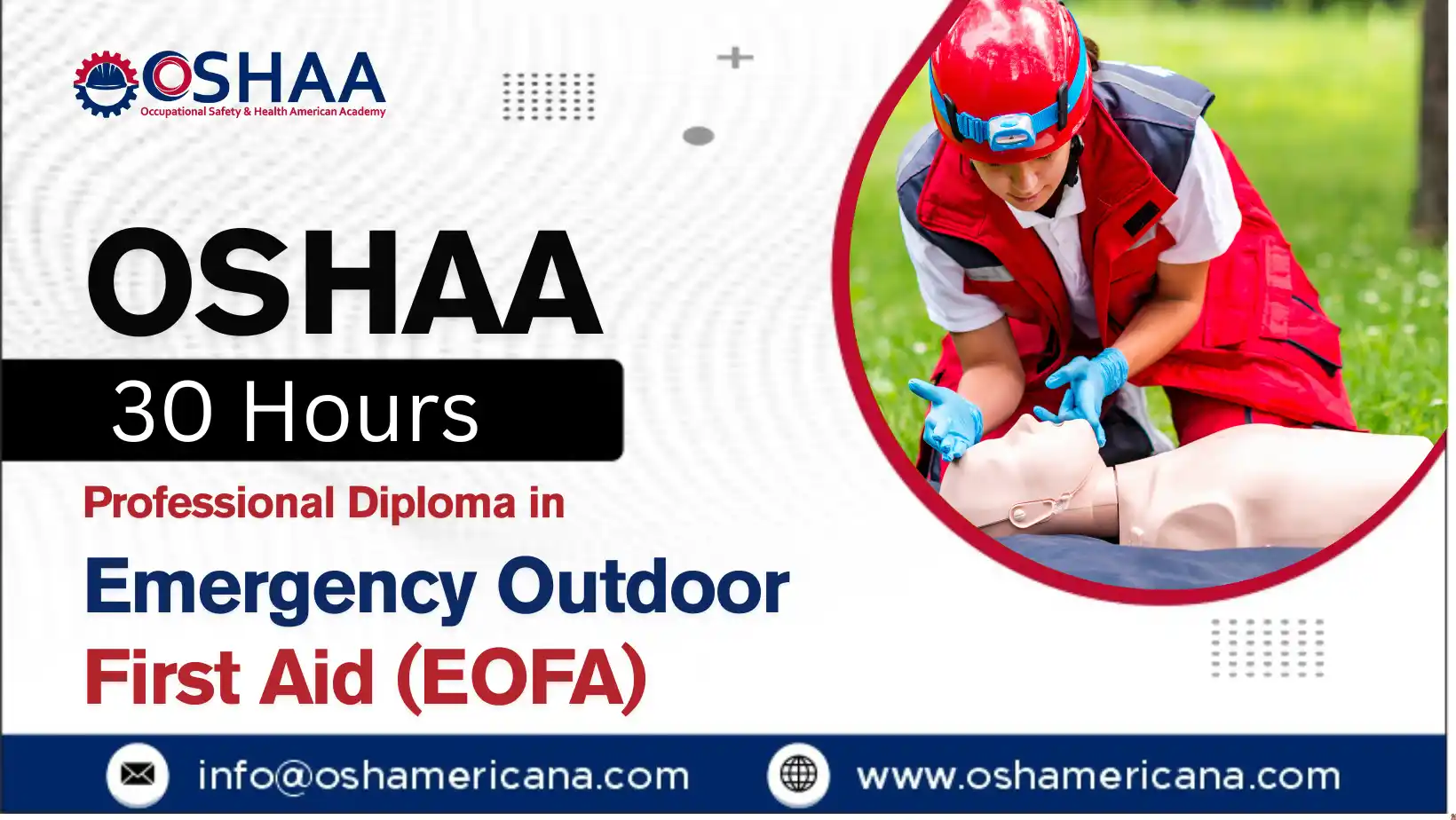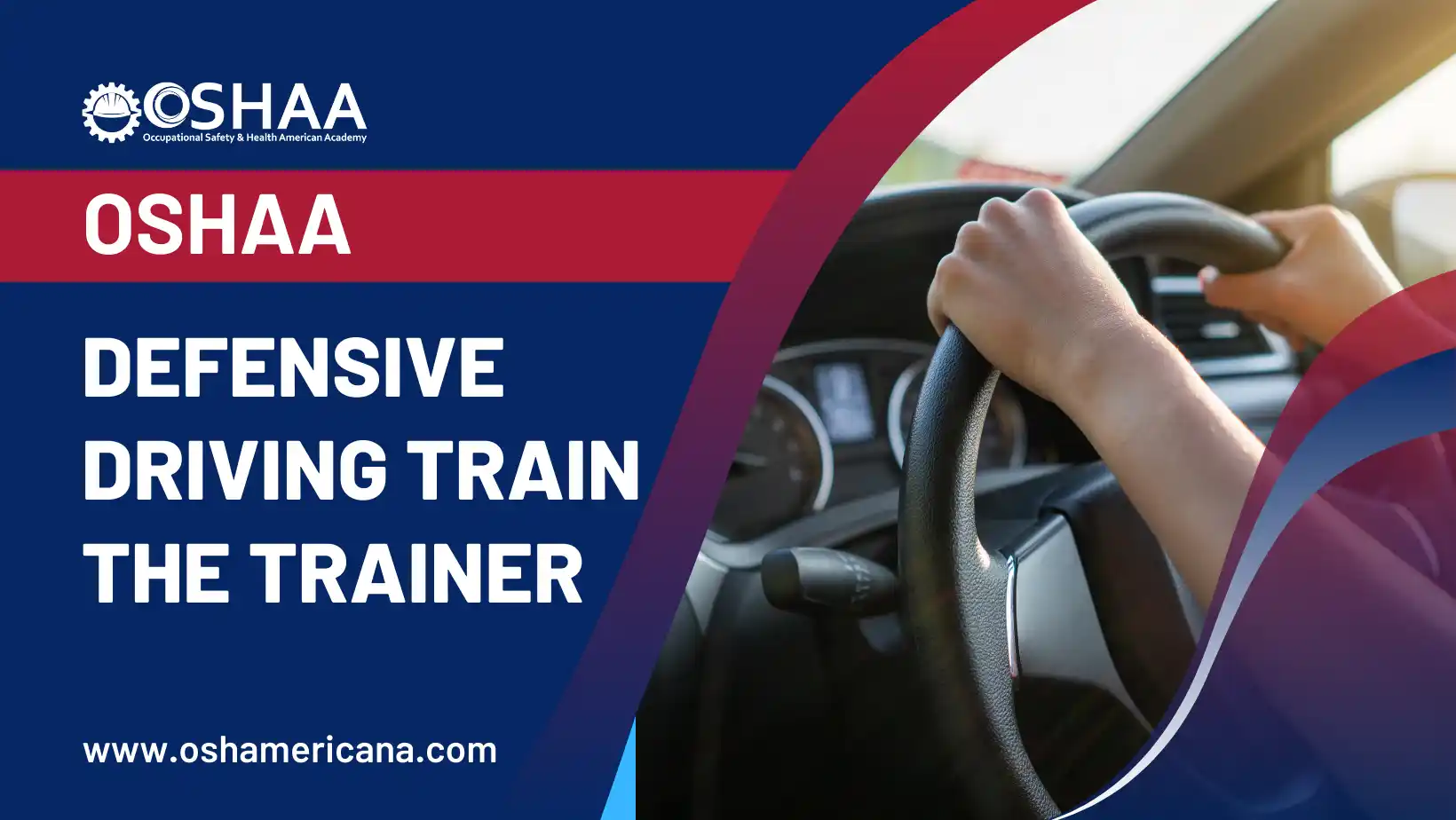The OSHAA 30-Hours Professional Diploma in Emergency Outdoor First Aid (EOFA) is a specialised training programme designed to equip participants with essential first aid skills tailored for outdoor and remote environments. Recognising that emergencies in outdoor settings often require quick thinking and resourcefulness, this diploma prepares participants to provide effective care when immediate professional medical assistance may not be readily available.
Offered and awarded by OSHAA, the course aligns with international standards and is ideal for individuals involved in outdoor activities, adventure sports, wilderness guiding, environmental work, and other professions where safety in remote locations is critical. Participants gain a thorough understanding of how to assess and manage injuries and medical emergencies that commonly occur in outdoor contexts, including fractures, hypothermia, dehydration, insect bites, and animal attacks.
The programme combines theoretical knowledge with practical, scenario-based training to ensure participants develop the confidence and competence to respond efficiently under challenging conditions. Emphasis is placed on improvising with limited resources, managing prolonged care situations, and understanding environmental hazards such as extreme weather and terrain risks.
Throughout the course, participants learn vital skills such as casualty assessment, wound management, CPR and automated external defibrillator (AED) use, handling fractures and soft tissue injuries, and managing environmental emergencies like heatstroke and cold exposure. The training also covers emergency evacuation procedures and effective communication techniques to coordinate rescue efforts in remote locations.
Completing the OSHAA 30-Hours Professional Diploma in Emergency Outdoor First Aid enables participants to act decisively and confidently in life-threatening situations outdoors. The qualification is valuable for outdoor educators, guides, rescue teams, camp leaders, and anyone who spends significant time in wilderness or remote settings.
By gaining this diploma, participants not only enhance their personal safety and preparedness but also contribute to safer outdoor experiences for others. OSHAA’s commitment to high-quality training ensures that participants receive up-to-date, practical, and reliable first aid education designed specifically for the unique challenges of outdoor emergencies.
OSHAA 30-Hours Professional Diploma in Emergency Outdoor First Aid (EOFA)
Study Units
Learning Outcomes
Introduction to Emergency Outdoor First Aid and Legal Responsibilities (2 Hours)
- Understand the principles and scope of outdoor first aid
- Recognise legal and ethical responsibilities related to outdoor emergency care
- Identify key regulations governing first aid in remote settings
Outdoor Risk Assessment and Scene Management (3 Hours)
- Conduct effective risk assessments specific to outdoor environments
- Manage emergency scenes safely and efficiently
- Prioritise actions to protect casualties and responders in remote locations
Casualty Assessment and Primary Survey in Remote Environments (4 Hours)
- Perform thorough casualty assessments in challenging outdoor conditions
- Conduct primary surveys to identify life-threatening issues
- Adapt assessment techniques to limited resources and environmental constraints
Cardiopulmonary Resuscitation (CPR) and Automated External Defibrillator (AED) Use (4 Hours)
- Demonstrate CPR techniques in line with international standards
- Operate AED devices confidently in emergency situations
- Integrate CPR and AED use effectively in outdoor rescue scenarios
Management of Bleeding, Wounds, and Shock in Outdoor Settings (4 Hours)
- Identify and control various types of bleeding in remote conditions
- Apply appropriate wound care and dressing methods
- Recognise and manage shock with consideration to environmental factors
Treatment of Fractures, Sprains, and Soft Tissue Injuries in the Outdoors (4 Hours)
- Identify common musculoskeletal injuries encountered outdoors
- Apply immobilisation and support techniques using improvised materials
- Provide pain relief and care tailored to remote settings
Environmental Emergencies: Hypothermia, Heatstroke, Dehydration, and Bites (4 Hours)
- Recognise signs and symptoms of environmental emergencies
- Administer correct first aid treatments for hypothermia, heatstroke, dehydration, and bites
- Implement prevention strategies to minimise environmental risks
Prolonged Care and Monitoring in Remote Locations (3 Hours)
- Manage casualties when evacuation is delayed or prolonged
- Monitor vital signs and changes in casualty condition over time
- Provide comfort and maintain safety until advanced medical help arrives
Emergency Evacuation Procedures and Communication Techniques (2 Hours)
- Plan and execute safe evacuation strategies in outdoor settings
- Utilise effective communication methods for coordinating rescue efforts
- Understand the importance of teamwork and clear information exchange during emergencies
- Provides specialised skills tailored for first aid in outdoor and remote environments
- Equips participants to confidently manage emergencies where professional medical help may be delayed
- Enhances ability to assess and respond to a wide range of injuries and medical conditions unique to outdoor settings
- Develops practical skills for improvising treatment and care with limited resources
- Builds competence in handling environmental emergencies such as hypothermia, heatstroke, dehydration, and animal bites
- Strengthens understanding of risk assessment, scene management, and casualty monitoring in challenging conditions
- Improves readiness for emergency evacuation and effective communication in remote locations
- Increases personal and professional safety awareness for outdoor workers, guides, and adventure enthusiasts
- Offers an internationally recognised qualification that supports career advancement in outdoor education, rescue, and environmental fields
- Encourages confidence and preparedness to provide timely, life-saving care in diverse outdoor situations
- Participants working in outdoor education, adventure tourism, and wilderness guiding
- Outdoor professionals such as park rangers, forest workers, and environmental researchers
- Rescue and emergency response teams operating in remote or rugged terrain
- Sports coaches, camp leaders, and recreational activity coordinators in outdoor settings
- Volunteers and staff involved in community or conservation projects in remote areas
- Individuals who frequently participate in hiking, trekking, camping, or other outdoor pursuits
- Anyone seeking specialised first aid training tailored to the unique challenges of outdoor emergencies
- Participants aiming to enhance their safety skills and qualifications for careers or personal preparedness in outdoor environments







